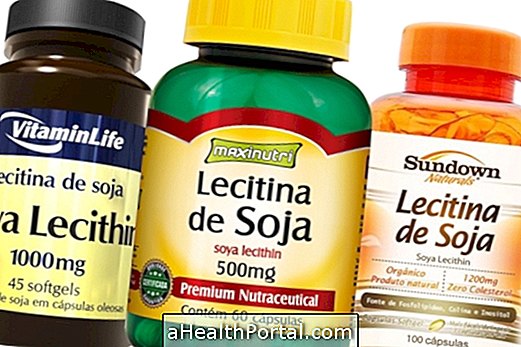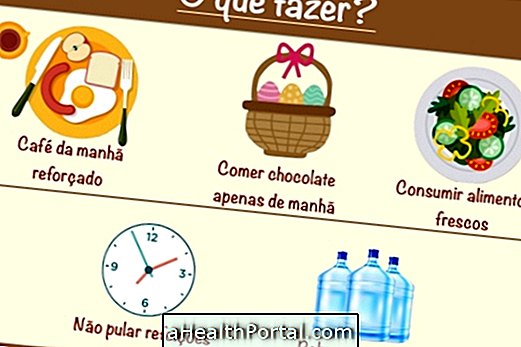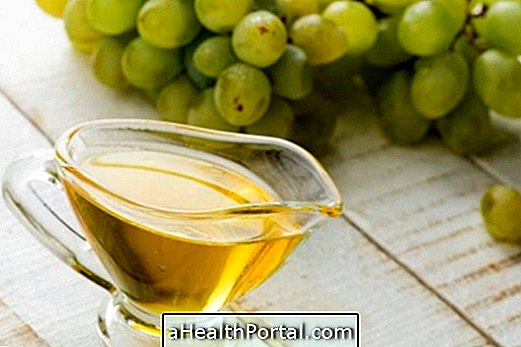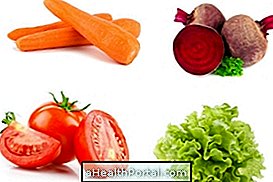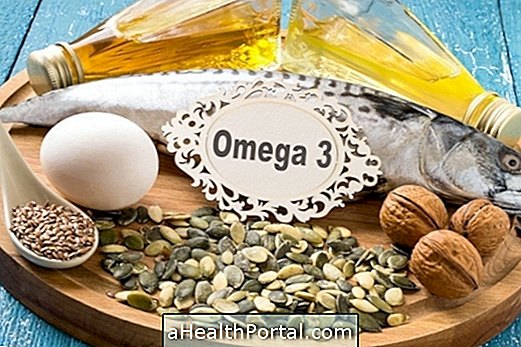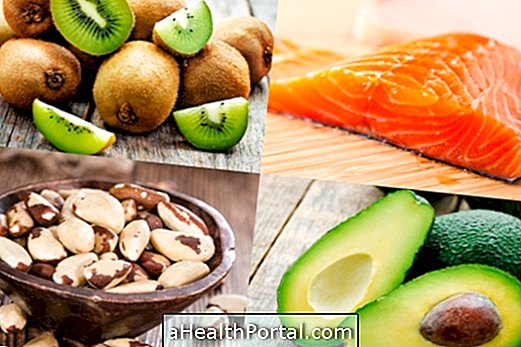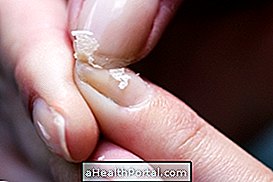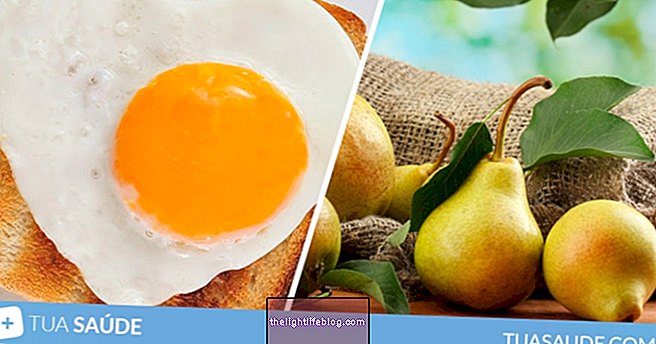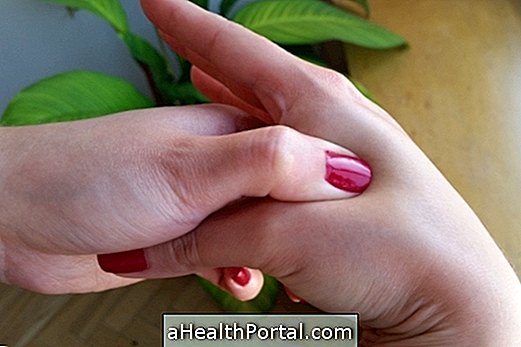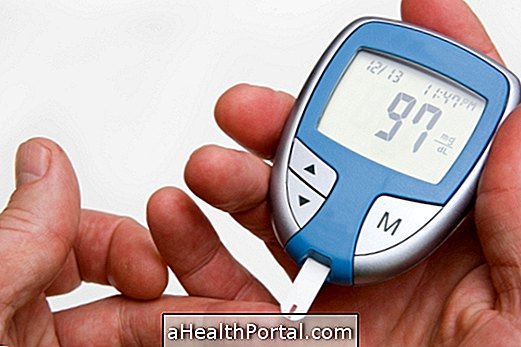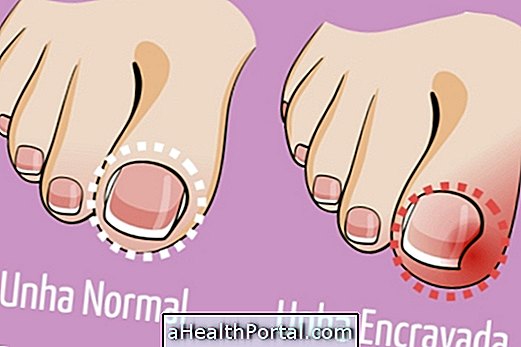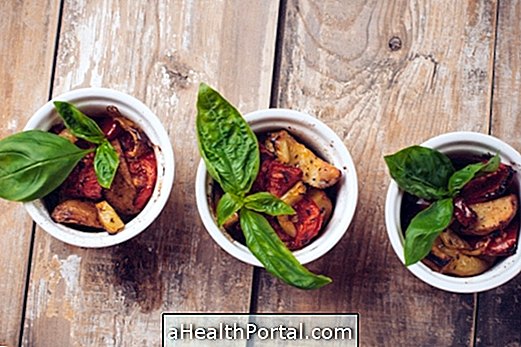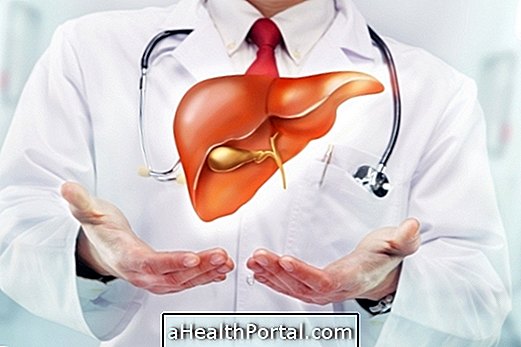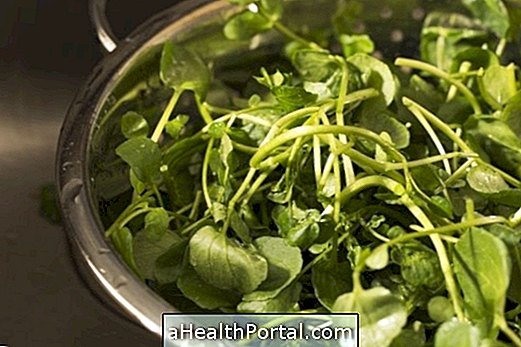Dried fruits such as cashew nuts, peanuts, peanuts, nuts, almonds, hazelnuts, macadamia nuts, pine nuts and pistachios, also known as oleaginous, can be allied to the diet if consumed in small quantities as 4 units per day for example, when you are not allergic or are not on a weight loss diet.
They are rich in nutrients like good fats that improve cholesterol, zinc, magnesium, vitamin B complex, selenium and fiber. So, these fruits bring health benefits like:
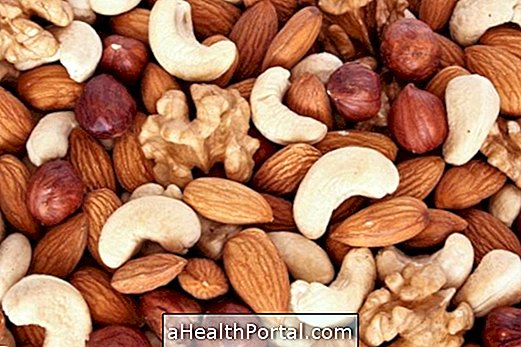
- Help to lose weight, because they contain fibers, proteins and good fats, which give more satiety;
- Improve cholesterol as they are rich without unsaturated fats, which reduce bad cholesterol and increase good;
- Strengthen the immune system by being rich in zinc and selenium;
- Improve the gut by containing good fiber and fat;
- Prevent atherosclerosis, cancer and other diseases by being rich in antioxidant nutrients such as selenium, vitamin E and zinc;
- Give more energy because it is high in calories;
- Stimulate muscle mass by containing proteins and B-complex vitamins;
- Act as an anti-inflammatory because good fats reduce inflammation in the body, which decreases joint pain, prevents diseases and helps weight loss.
These benefits are obtained by consuming the nuts daily, in small portions that vary according to the fruit. See other foods rich in good fats.
Recommended amount to lose weight
The amount of nuts recommended during the day to lose weight is about 50 to 100 kcal, which equals 2 to 4 nuts, or up to 10 cashews or 20 peanuts, for example.
Those who want to gain muscle mass can consume twice this amount, I take care not to exceed 4 nuts per day, because it is very rich in selenium and the excess of this mineral can cause intoxication and problems in the body, such as hair loss, fatigue, dermatitis and weakening of the enamel of the teeth.
In addition, it is important to remember that children and seniors should consume fewer amounts of nuts, and that their excess can make them fat.
Nutritional information
The following table shows the nutritional information for 100 g of each dried fruit:
| Fruit | Calories | Carbohydrate | Protein | Fat | Fibers |
| Toasted almond | 581 kcal | 29.5 g | 18.6 g | 47.3 g | 11.6 g |
| Roasted Cashew Nuts | 570 kcal | 29.1 g | 18.5 g | 46.3 g | 3.7 g |
| Raw Nut | 643 kcal | 15.1 g | 14.5 g | 63.5 g | 7.9 g |
| Baked pine nuts | 174 kcal | 43.9 g | 3 g | 0.7 g | 15.6 g |
| Raw nut | 620 kcal | 18.4 g | 14 g | 59.4 g | 7.2 g |
| Roasted peanuts | 606 kcal | 18.7 g | 22.5 g | 54 g | 7.8 g |
The ideal is to consume the raw or roasted nuts without the addition of oils, only in the own fat of the fruits.
Difference between Dried Fruits and Dehydrated Fruits

While nuts are high in fat and naturally low in water, dehydrated fruits are artificially dried, yielding fruits such as banana raisins, raisins, prunes, apricots, and dates.
These fruits are sweet and, when dehydrated, they get smaller and have their sugar content concentrated. This causes them to bring less satiety after meals, which can lead to excessive consumption of calories. In addition, the ideal is to consume dehydrated fruits in the sun, without added sugar, because fruits that are dry with added sugar get much more caloric and favor even more weight gain. Find out which are the 7 fruits that make you fatter.
